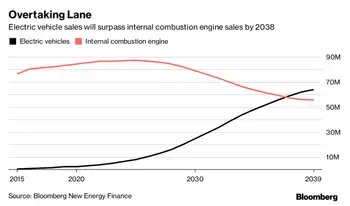EPRI joins Ford-SCE analysis of plug-in hybrids on grid
EPRI will form a collaborative of utilities in the New York-New Jersey area that will test Ford Escape PHEVs. Subsequent trials will be conducted with customers of the participating utilities.
Ford, which is also working with Southern California Edison (SCE), is the first automotive manufacturer to partner with the utility industry to facilitate advancing PHEVs. The new EPRI-Ford program will build on the ongoing Ford-SCE partnership and help determine regional differences in how the operation of PHEVs will impact the electric grid system.
“This partnership represents a concerted effort by the transportation and electric sectors to work together in advancing PHEV technology,” said Mark Duvall, EPRI’s program manager for Electric Transportation. “This effort should accelerate the pace of PHEV development while enabling the utility industry to prepare for the introduction of these vehicles.”
Ford has designed and is building 20 Escape PHEVs for testing in the Los Angeles area under the Ford-SCE partnership. With this new EPRI-Ford agreement, Ford is able to expand the evaluation and demonstration program to include other utilities.
“EPRI brings our collaborative efforts related to the potential of plug-in electric vehicle technology to a new level,” said Nancy Gioia, director of Sustainable Mobility Technologies at Ford. “PHEVs have great promise, but still face significant obstacles to commercialization, including battery costs and charging strategies. Ultimately such vehicles must provide real value to consumers.”
The evaluation and demonstration trials should provide solid technical information on PHEVs that will enable the development of common standards among utilities to accommodate the vehicles. “Expanding on the work Ford and SCE are doing can help move the automotive and utility industries closer in addressing the challenges of our transportation future,” said Ed Kjaer, director of Electric Transportation at SCE.
PHEVs are part of a family of electric-drive technologies that could play an important role in achieving national objectives of energy security and a reduction of greenhouse gas emissions. They could also lower fuel costs and lead to more cost-effective use of the nationÂ’s electricity grid, particularly during off-peak hours.
EPRI, Ford and SCEÂ’s research and analysis on the Ford PHEVs will include data from four primary areas: battery technology, vehicle systems, customer usage, and grid infrastructure. The analysis will also explore possible stationary and secondary usages for advanced batteries.
Related News

British Columbia Fuels Up for the Future with $900 Million Hydrogen Project
VANCOUVER - British Columbia is taking a significant step towards a cleaner future with a brand new $900 million project. This initiative, spearheaded by hydrogen company HTEC and supported by the Canadian Infrastructure Bank and the B.C. government, aims to establish a comprehensive hydrogen network across the province. This network will encompass both hydrogen production plants and fueling stations, marking a major leap in developing hydrogen infrastructure in B.C.
The project, dubbed "H2 Gateway," boasts several key components. At its core lies the construction of three brand new electrolysis hydrogen production plants. These facilities will be strategically located in Burnaby,…





